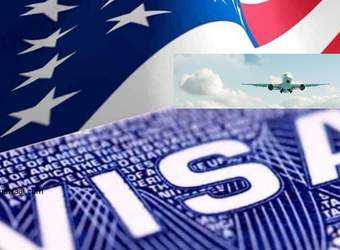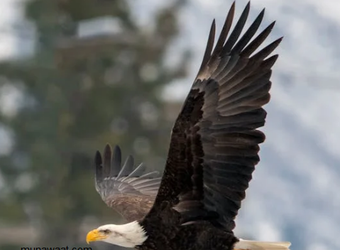applying for visa
Applying for a U.S. visa involves several steps, and the process can vary depending on the type of visa you're applying for (e.g., tourist, student, work). Here’s a general guide for applying for a non-immigrant visa, such as a tourist or business visa:
# 1. **Determine the Type of Visa You Need**
- Visit the U.S. Department of State’s website to determine which type of visa suits your purpose of travel.
# 2. **Complete the DS-160 Form**
- **Form DS-160** is the Online Nonimmigrant Visa Application. You can fill it out online at the [Consular Electronic Application Center](https://ceac.state.gov/CEAC).
- Make sure to answer all questions accurately and thoroughly. After submitting the form, you’ll receive a DS-160 confirmation page with a barcode. Print this out as you’ll need it for your visa interview.
# 3. **Pay the Visa Application Fee**
- The fee varies depending on the type of visa. Check the [U.S. Visa Fee page](https://travel.state.gov/content/travel.html) for the exact amount and payment methods.
# 4. **Schedule Your Visa Interview**
- You need to schedule an appointment at the U.S. embassy or consulate in your country. This can often be done online through the embassy’s website or through a visa service provider.
# 5. **Prepare Your Documents**
Gather and prepare the following documents for your visa interview:
- **Valid Passport**: Must be valid for at least six months beyond your intended stay in the U.S.
- **DS-160 Confirmation Page**: With barcode.
- **Visa Appointment Confirmation**: Proof of your appointment schedule.
- **Visa Application Fee Receipt**: Proof of payment.
- **Passport-Sized Photograph**: That meets the U.S. visa photo requirements.
- **Supporting Documents**: Depending on the visa type, this might include evidence of ties to your home country, financial stability, travel itinerary, and more.
# 6. **Attend the Visa Interview**
- Arrive at the embassy or consulate on time. The interview is usually short and focuses on your reasons for visiting the U.S. and your plans while you're there. Be honest and clear in your responses.
# 7. **Wait for Processing**
- After the interview, your visa application will be processed. Processing times can vary, so check with the embassy or consulate for estimated timelines.
# 8. **Receive Your Visa**
- If approved, your visa will be stamped in your passport. You’ll be informed about how and when to collect it, or it may be mailed to you.
For the most accurate and detailed information, always refer to the official U.S. embassy or consulate website for your country. They will provide specific instructions and requirements that apply to your location and visa type.
During a U.S. visa interview, the Consul typically asks questions to assess the applicant's eligibility, intentions, and ties to their home country. The questions vary depending on the type of visa (tourist, student, work, etc.) but usually focus on the applicant's purpose of travel, financial situation, and plans after the trip. Here are some common questions asked during U.S. visa interviews:
# Tourist Visa (B1/B2)
1. **What is the purpose of your visit to the United States?**
2. **How long do you plan to stay in the U.S.?**
3. **Where will you be staying during your trip?**
4. **Do you have family or friends in the U.S.?**
5. **Who is sponsoring your trip, and how will you cover your expenses?**
6. **What is your occupation, and how long have you worked in your current position?**
7. **Do you have any relatives living in the United States?**
8. **What ties do you have to your home country that will ensure you return after your visit?**
9. **Have you ever visited the U.S. before? If so, when?**
10. **Can you provide details of your travel itinerary?**
# Student Visa (F1/M1)
1. **Why did you choose this particular university or program?**
2. **What is your major or course of study?**
3. **How do you plan to finance your education?**
4. **Do you have any scholarships or financial aid from the university?**
5. **What are your plans after completing your studies in the U.S.?**
6. **Do you plan to return to your home country after finishing your degree?**
7. **What does your family do, and do they support your decision to study abroad?**
8. **Have you been to the United States before?**
9. **What will you do if your visa application is denied?**
# Work Visa (H1B, L1, etc.)
1. **What is your job title, and what will your role be in the U.S.?**
2. **Which company is sponsoring your visa, and how did you get this job?**
3. **What qualifications or experience make you suitable for this position?**
4. **How long do you plan to work in the United States?**
5. **Do you have plans to apply for permanent residency in the U.S.?**
6. **Will your family accompany you to the U.S.?**
7. **What is the salary being offered for your position in the U.S.?**
8. **What ties do you have to your home country?**
### Immigrant Visa (Family, Spouse, etc.)
1. **How did you meet your spouse/family member in the U.S.?**
2. **How long have you been married or in a relationship?**
3. **Where does your spouse/family member live in the U.S., and what do they do for a living?**
4. **What are your plans once you arrive in the U.S.?**
5. **Can you provide documentation of your relationship?**
6. **Do you have any previous immigration violations or criminal records?**
7. **Have you visited the U.S. before, and if so, when?**
# General Questions (All Visa Types)
1. **Have you ever been denied a U.S. visa before? If so, why?**
2. **Do you have any family members who are U.S. citizens or permanent residents?**
3. **What will you do if your visa application is refused?**
4. **Do you have any criminal records or previous immigration violations?**
The purpose of these questions is to verify the applicant's intent, financial ability, and eligibility based on the visa type they're applying for. The Consul wants to ensure that applicants meet the legal requirements and will comply with U.S. immigration laws.




Related Articles